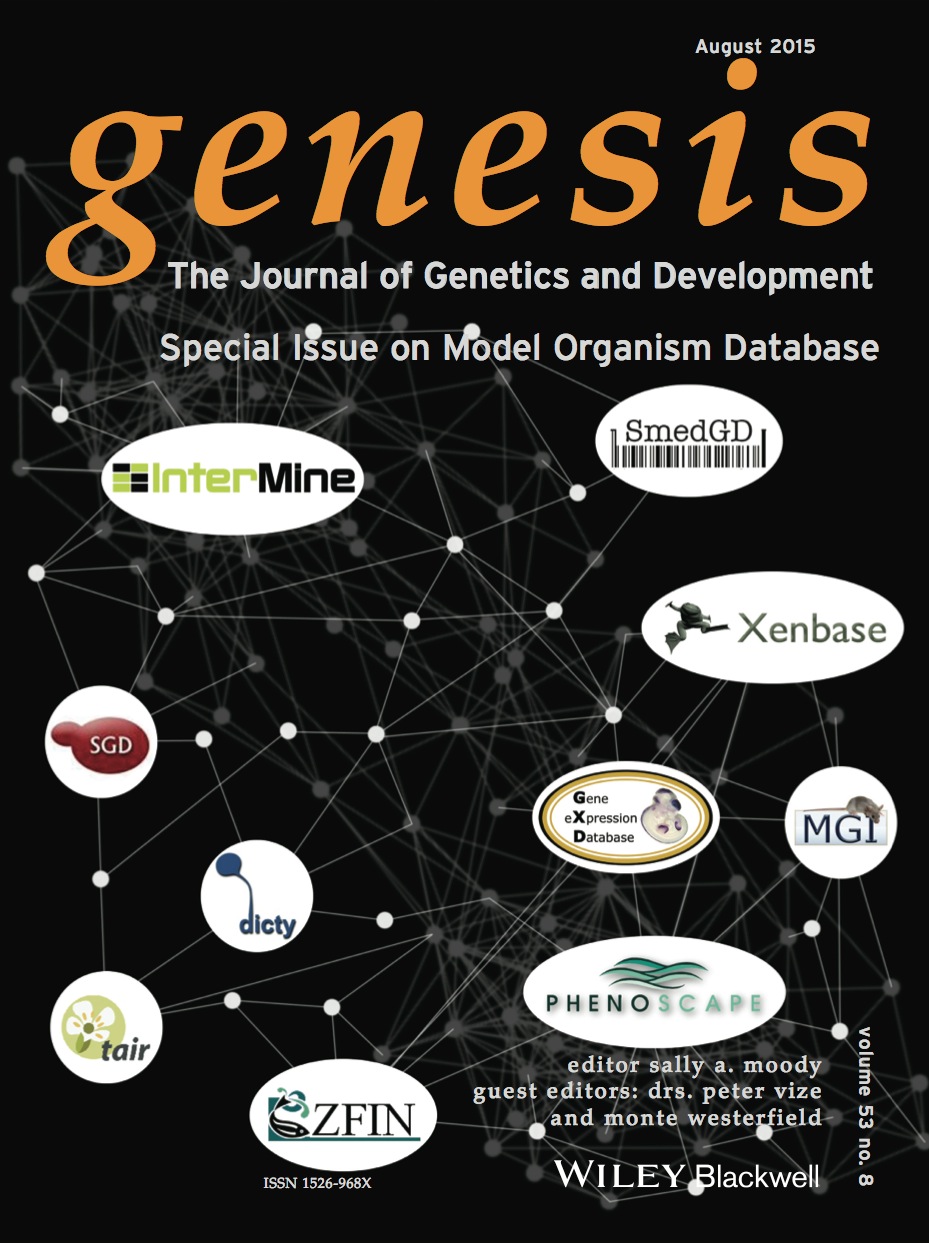Genesis: Special Issue
Model Organism Databases
Click here to go view this Special Issue online.
This special issue of Genesis focuses on Model organism databases (MODs) and provides an overview of the contents and technologies these resources provide to the biomedical research community. MODs started, when internet technologies became widely available back in the 1990's, as specialized web sites and evolved over the following 2 decades into web portals to sophisticated databases. Rather than growing as isolated specialists, the MODs have become more integrated, and the combined power of their contents can now be leveraged by researchers in a variety of biomedical fields. Their contents are not simply enormous collections of specialized data, but rather the data within each MOD are connected to many other types of data and via ontologies to a large proportion of biomedical knowledge. Genes are linked not just to proteins, but also to functions, genetic phenotypes, experimental results, gene expression and human congenital diseases.
Papers in this special issue cover a broad range of issues regarding MODs, everything from user guides to sophisticated data querying interfaces aimed at guiding MOD users to leverage MOD content better to discussions that explain how data are gathered and validated. This assists users to grasp content quality and assists other resources that may want to learn from extant systems and perhaps adopt the technologies developed by the MODs.
MODs have evolved significantly during the past 20 years, and over the next decade these databases will become more integrated and interoperable via specialized tools for querying multiple MOD based content such as InterMine. Their content has recently been used to predict gene to disease associations and also gene changes associated with evolution.

Peter D. Vize
Professor of Biological Sciences
University of Calgary
2500 University Drive NW
Calgary, Alberta T2N 1N4
Canada
Monte Westerfield
Institute of Neuroscience
1254 University of Oregon
Eugene, OR 97403-1254
USA
